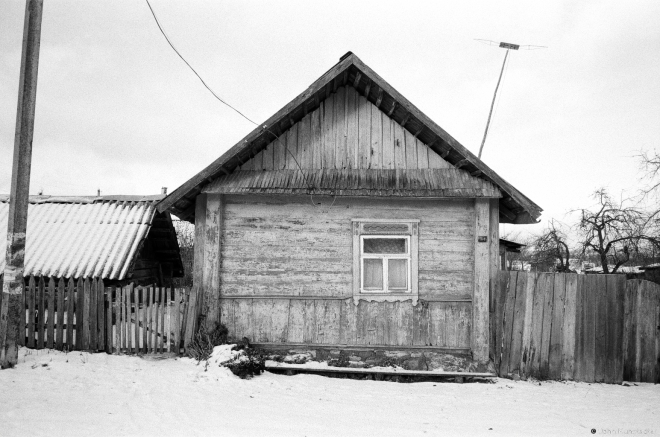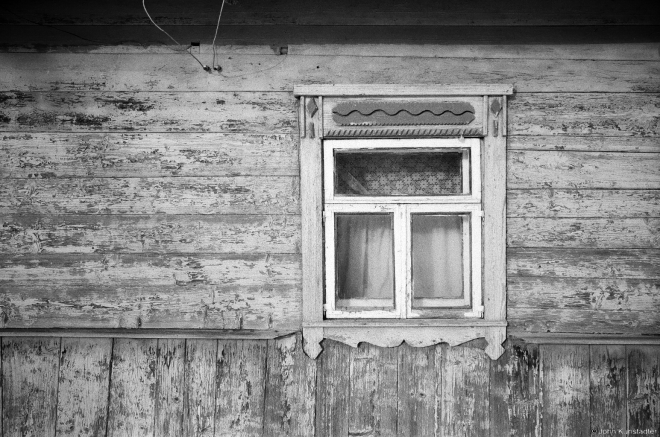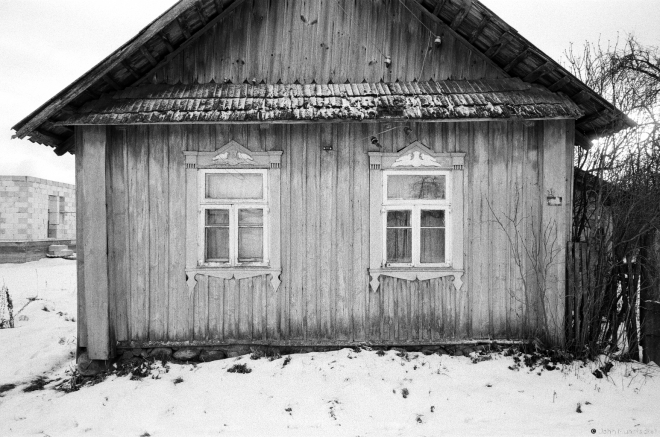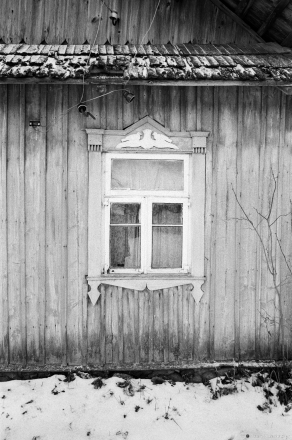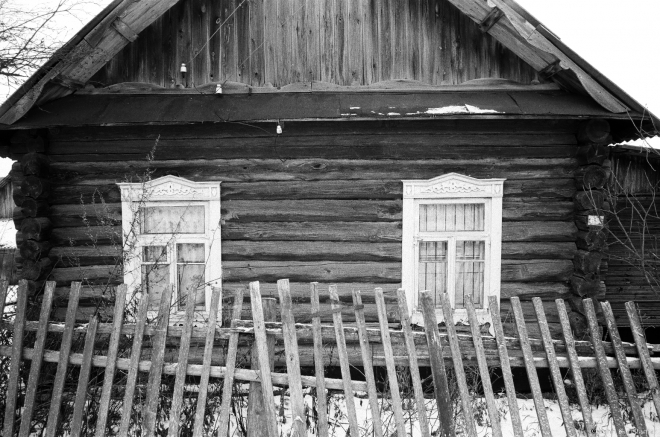Photo expeditions to Lahojsk District: Damashy, Sjamkova, Kas’tsjanjevichy, Hajna.
Фотаэспедыцыі па Лашойскім раёне: Дамашы, Сямкова, Касьцяневічы, Гайна.
Hajna 2016.
Every village has its hidden tales and is full of the spirits of past generations. Some villages in addition radiate a dignified sense of self, a quiet insistence on respecting, and drawing inspiration from, the past. Hajna, 40 kilometers north-northeast of Mjensk, is one such village. Now with just over 500 people, Hajna was a historically significant settlement during the rise of the Grand Duchy of Lithuania (GDL) in the 15th and 16th centuries. As one of the GDL’s oldest Roman Catholic parishes, Hajna had a splendid church in the Vilnius Baroque style, built in 1781 but destroyed by the Soviet regime in its re-occupation of Belarus at the end of World War II. Despite this grievous loss of patrimony, the people of Hajna retain a strong sense of local identity, reflected in part in the care with which they use traditional lishtvy (ліштвы – window frames with carved wood decorations) to decorate their windows.
Lishtvy vary in style from region to region. However, they all traditionally incorporate zoological, anthropomophic and other natural motifs — including stylized representations of dragons and serpents — which serve as spells or charms to protect the house against the evil eye, evil spirits or destructive forces of nature. Houses in Hajna have a particularly interesting set of motifs.
Lishtvy (part I/II).
Ліштвы (I/II), Гайна 2016 г.
Гл. выдатныя артыкул “Знакі на вокнах“ (http://www.istpravda.ru/bel/artifacts/4330/) ды відэа “Беларускія іерогліфы“ (https://www.youtube.com/watch?v=k_IWagcNGu0) Алеся Гузіна пра беларускія ліштвы.
Serpent or water motif.
Сімвал зьмеі ці вады.
Birds.
Птушкі.
Symbol of nature or stylized dragon.
Сімвал прыроды ці цмока.
